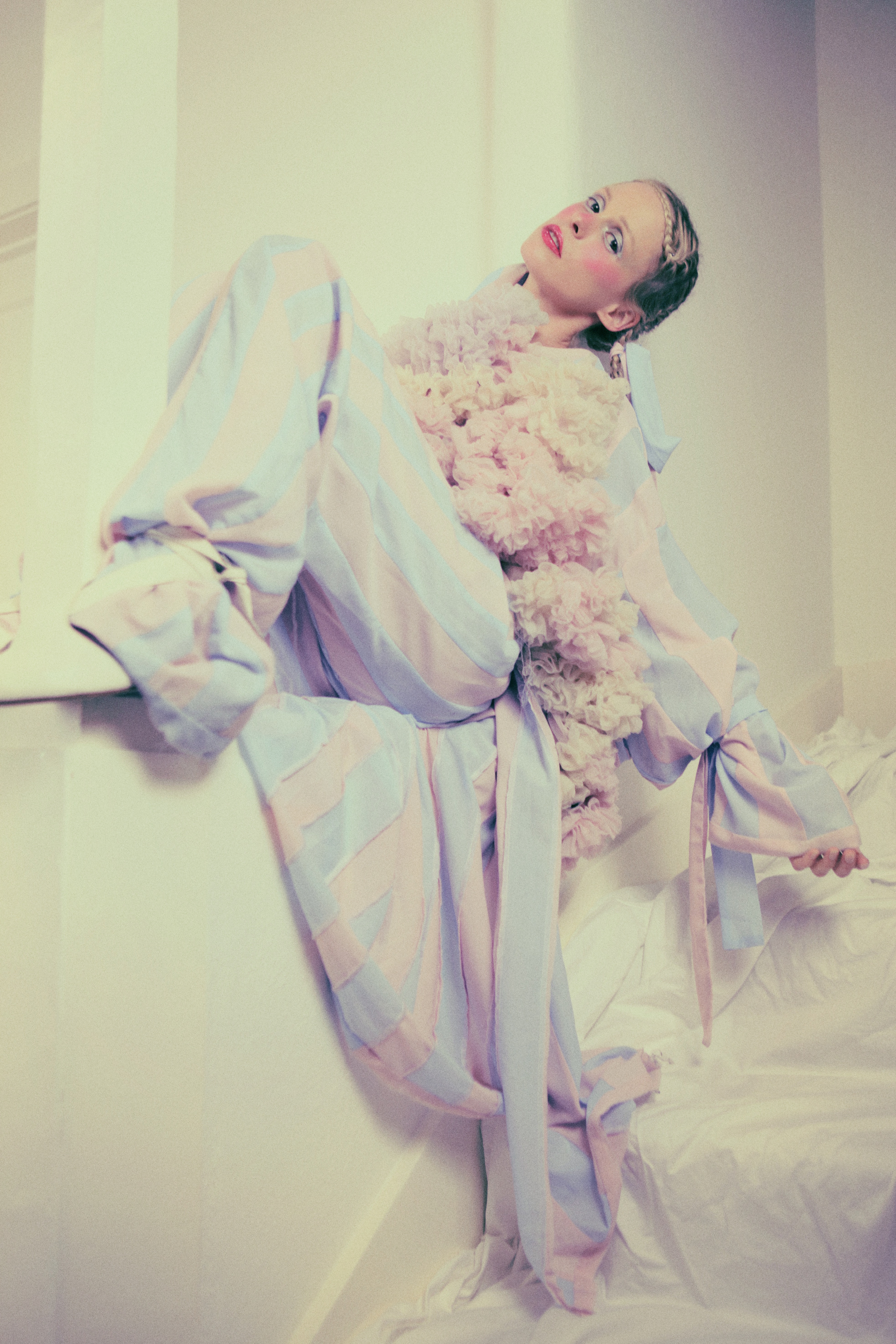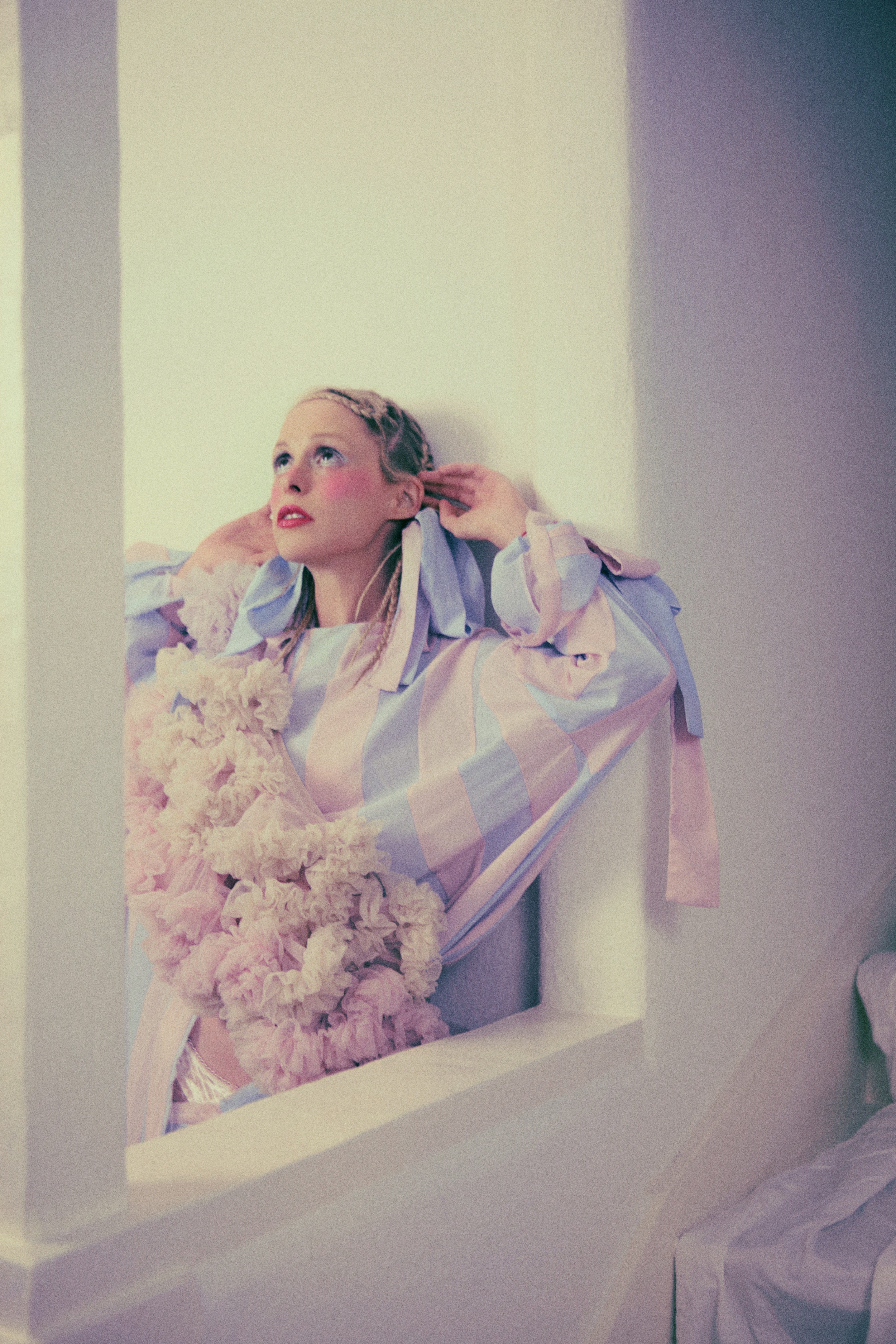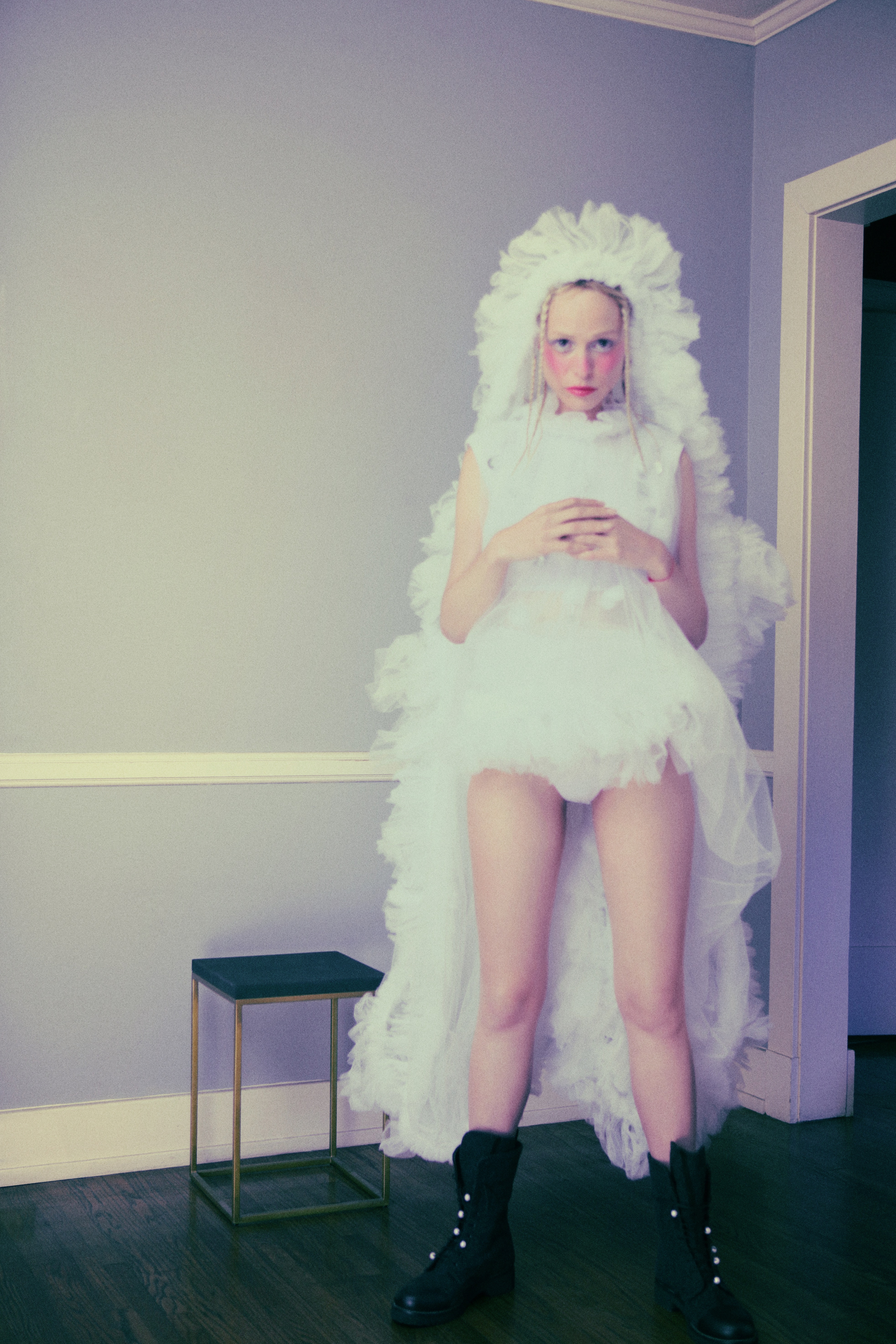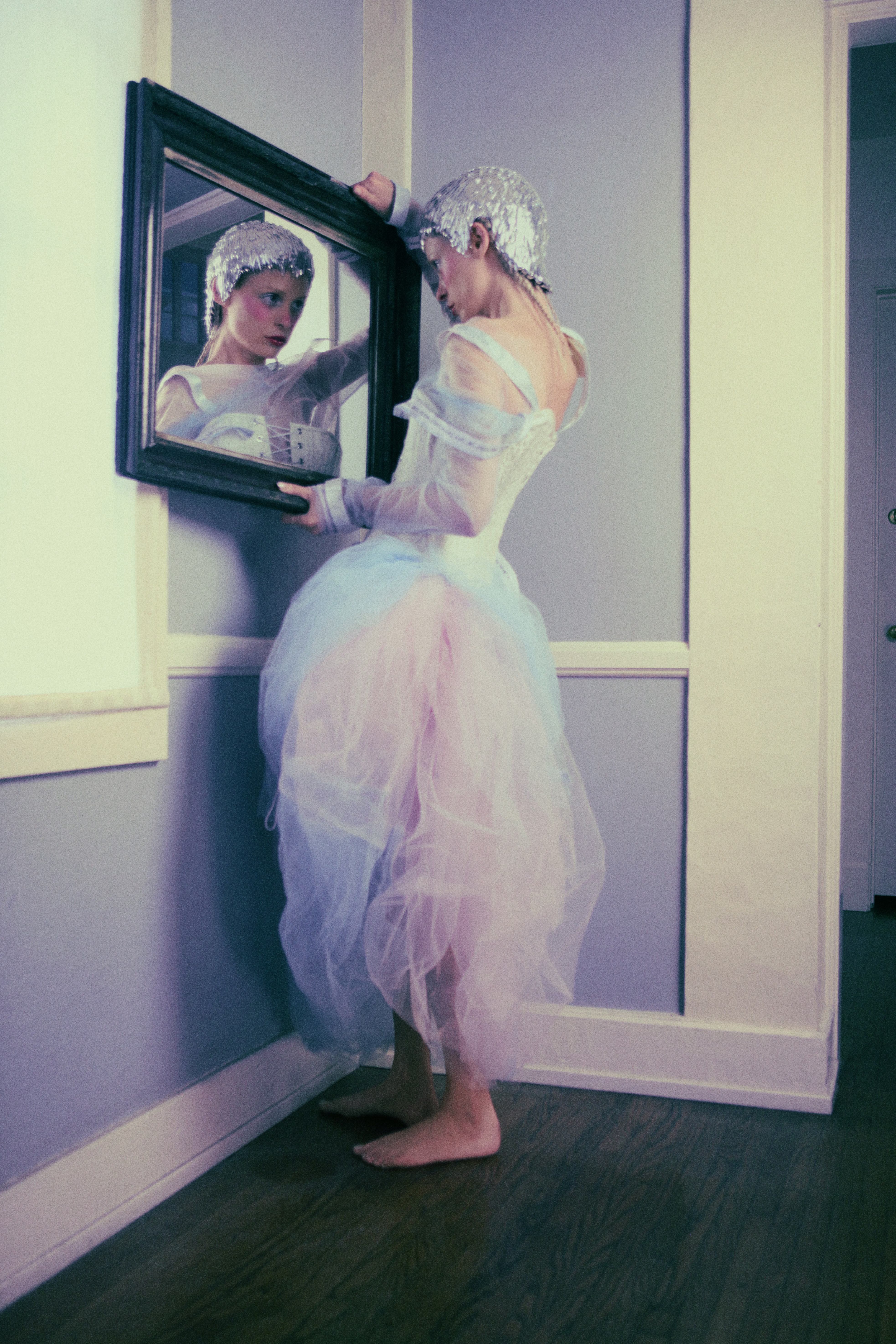

Photography by Pamela Neal
Creative Direction by Deborah Ferguson
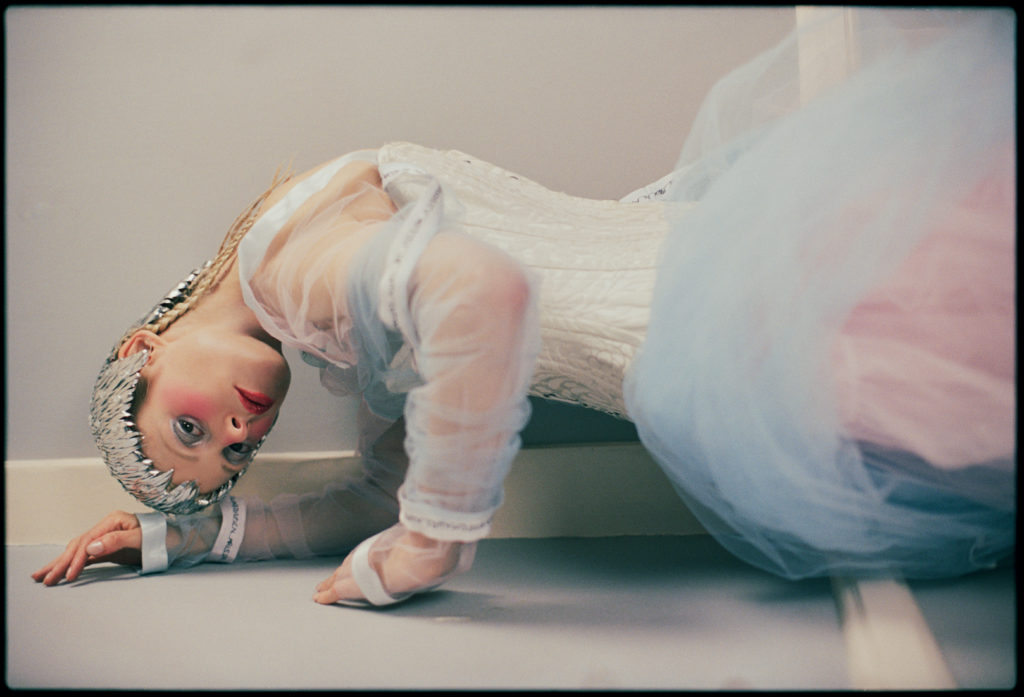
Head piece and Corset available at Ivan Bitton
Interview by Sydney Nash
Petite Meller is a French musician whose upbeat pop sound is layered with jazz melodies and Freudian influences. Her signature rouged cheeks and platinum blond braids, paired with her carefully curated cinema-inspired style has garnered attention from the fashion world as well. The convergence of both her sound and look prove she is one of the most exciting singers to emerge from the French pop scene in years. Her single “Baby Love” landed her on the U.K. Top 30 and she was nominated for an MTV European Music Award in 2017. We sat down with her to talk about her music (insert details from answers) and what’s next for the French singer.
You spent most of your childhood between Paris and Tel Aviv. Tell me what it was like growing up in two different countries and cultures. How did this upbringing influence your music?
It’s the multi culture sounds and the mix of pain and joy in a one upbeat song as that is the rhythm of life in where I was growing.
Can you recall your first introduction to music and performance?
I was with the boy I loved at age 7, we recorded a song together in the restroom as it had an amazing acoustic of water sound.
Tell me the moment you decided to leave your old band and become a solo artist. What was the motivation for taking that leap?
I was walking in NY street hearing a sax player from the edge of the BK bridge and suddenly recalled how I love Jazz which was a different genre from my band, in my mind came the words “things I cant control” it was my first solo song NYC Time which opens me the way to shoot my first video in NY, a ride on the jazz shoulders from the suburbs music into the city.
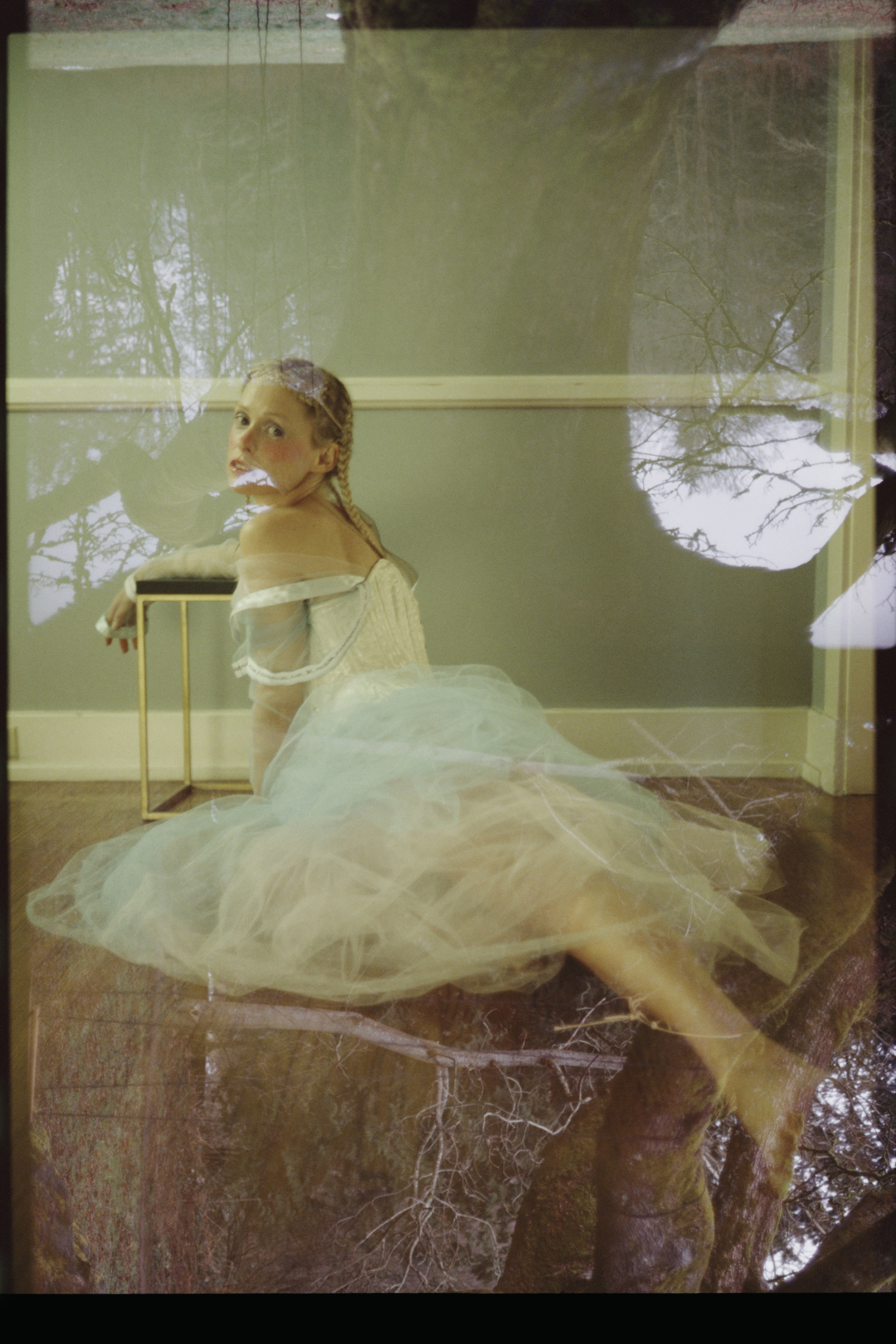
Where does inspiration typically happen for you? Is there a time of day or place where you commonly find inspiration for your music?
Its usually comes from traveling far, Graceland album was really a big inspiration for me, I love Bongos, funky bass Mongolian flutes and saxophones. But the visual inspirations always comes from classic cinema like Hitchcock and Antonioni’s.
Having a master’s in philosophy, you frequently reference individuals like Freud and Lacan as influential figures that inspire your work. Are there any other important figures (living or dead) that you feel drawn to or inspired by?
I love Zizek as he is a provocateur and bring out of the box ideas but yeah I’ve been looking for a Lacanian group readings in LA.
Your mother is French and your father is Polish, and you grew up between France and Israel. Does being multilingual influence the way you express yourself lyrically?
I grew up with French chansons in the background. My accent is a mix with French-Hebrew, my lyrics comes from reading and feelings, usually sad ones as music helps me overcome.
Observing your work as a musician, one of the most striking and arguably successful aspects of your performance is your image. It seems to be deeply connected to who you are as an artist. What role does your image play in the making of your music and in your performances?
My blush is my mark, comes out from a sunburn trauma, I like when people wear their trauma proudly,
I do like to emphasis the growing out of pain through music I experience and wish to achieve.
Do you have trouble separating yourself from your image once the lights go down and the camera is off?
I think my image is myself, I don’t pretend to be someone I’m not, I just put myself in my videos in places I’ve never been to which inspires my songs ideas.
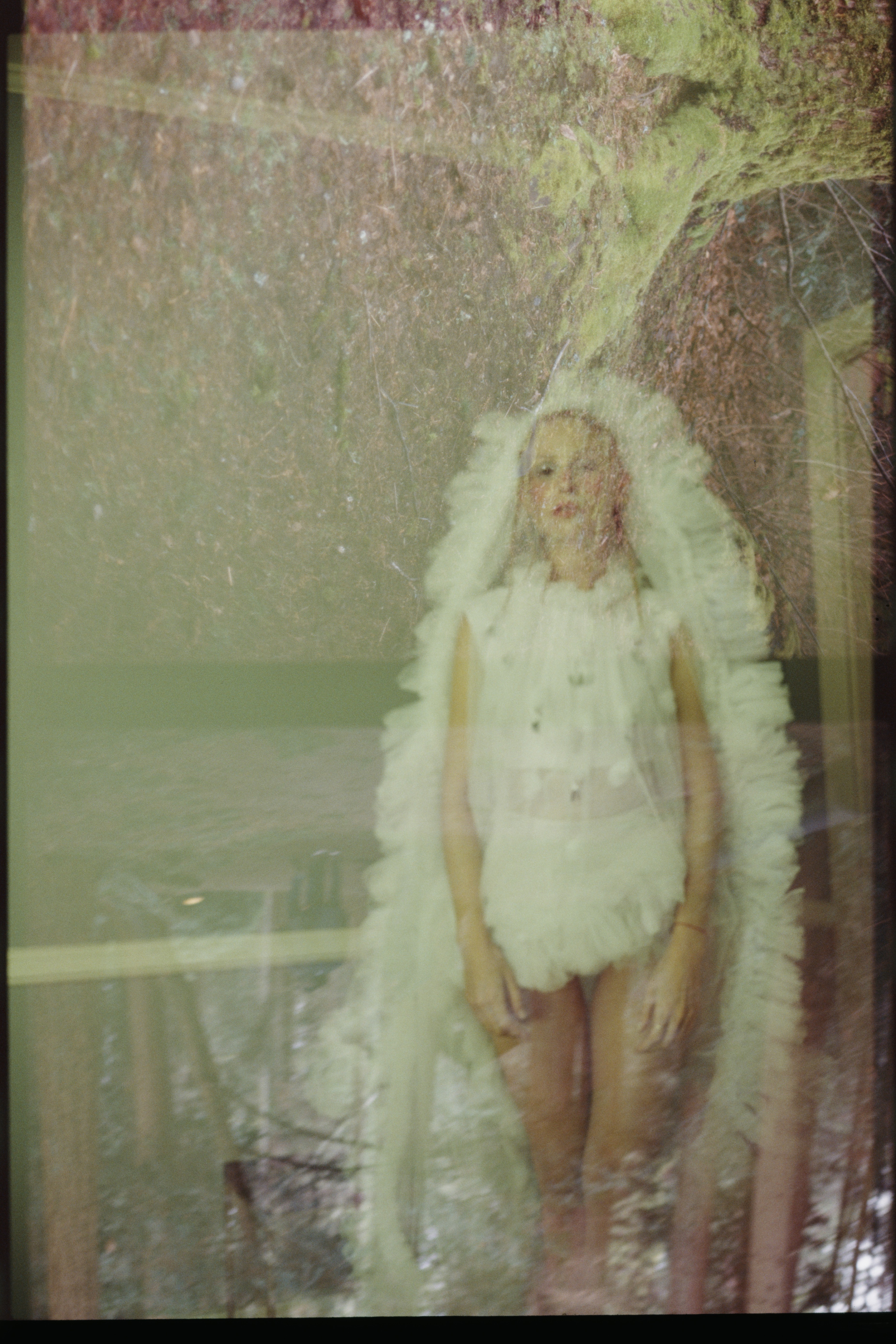
One of the most enjoyable parts of your music videos are the outfits you wear. Not only are they whimsical, but they also seem to be deeply symbolic. Tell me about the process that you and your stylist go through in deciding the wardrobe for each of your projects.
We love to work with young designers from Central Saint Martins, and lots from Asia lately like Angel Chen, me and my stylist Nao Koyabu design together the outfits and send to the designers to make their own interoperation.
You’ve worn so many amazing looks. What’s been your favorite?
I think the fabrics I put on my head in baby love video, as we just bought it in the market in Kenya and it dictated the whole color pallet which was strong colors. I’m always obsessed with little touristic souvenirs.
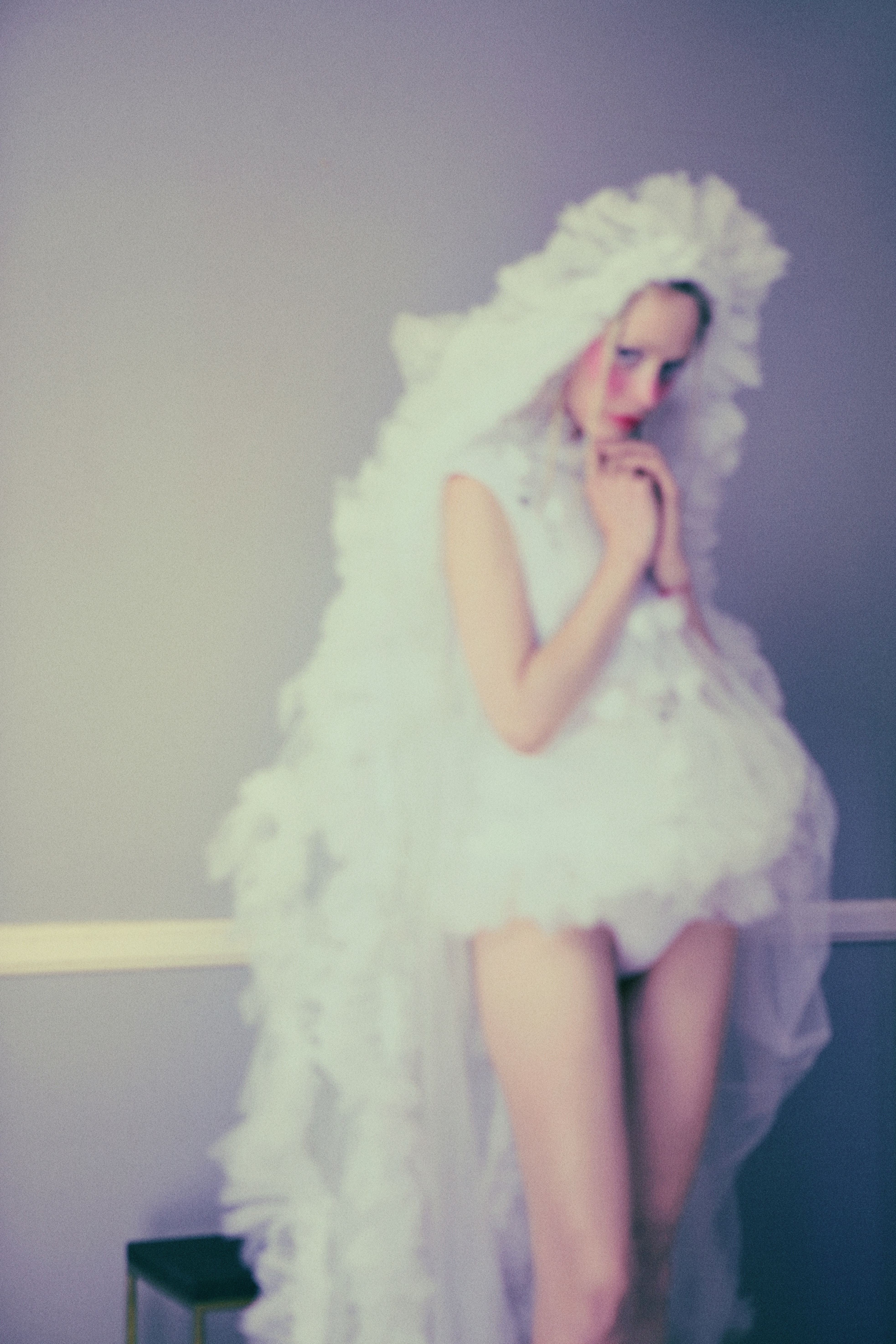
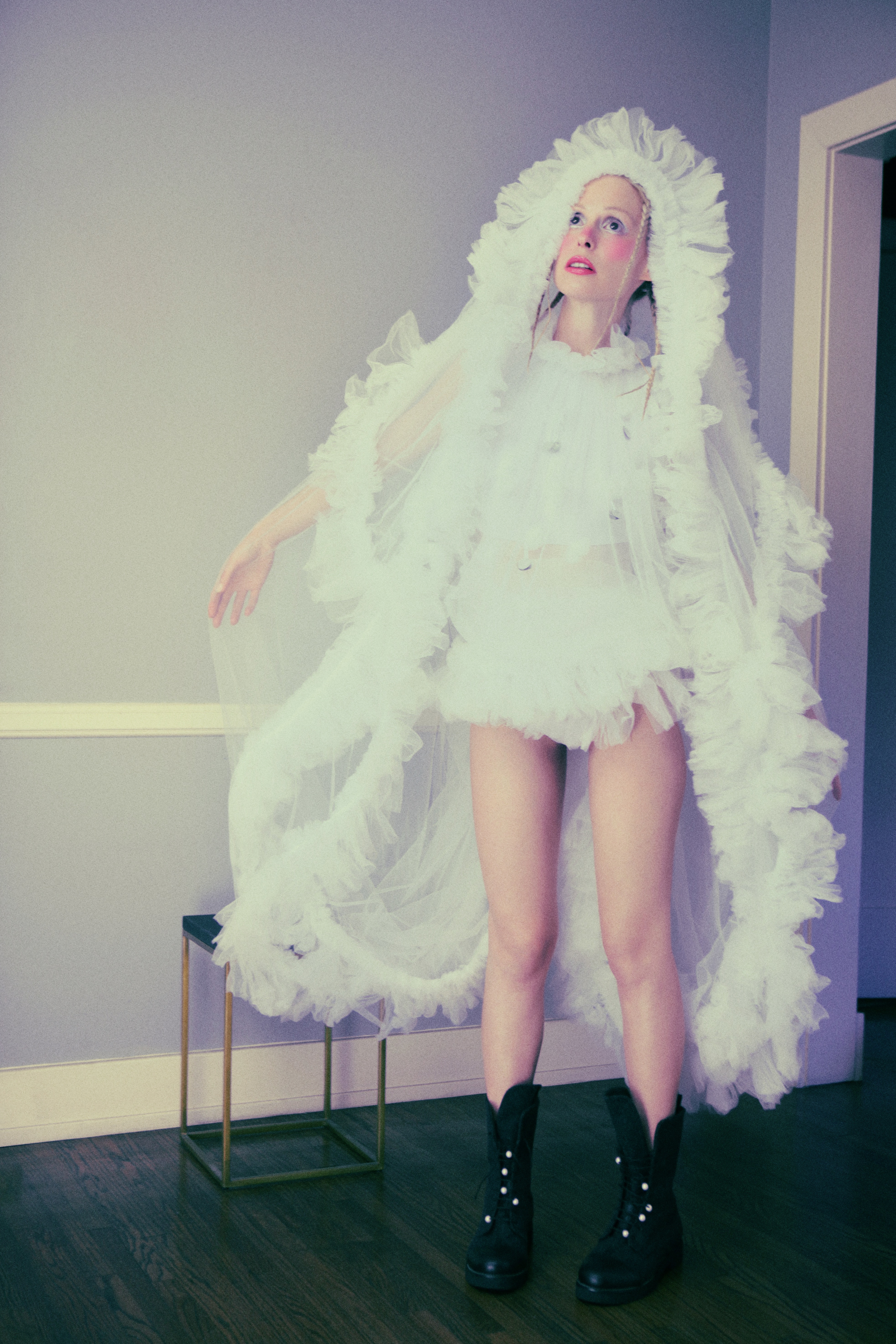
Physical place and location play a large role in your music. Is there any one place you feel most closely connected to?
I’m all about traveling, right now LA feels like home.
What’s your favorite place you’ve filmed and where are you dying to film?
I think Kenya and the Giraffe manor hotel was heaven on earth, the pink flamingos and the incredibly beautiful loving kids who got connected to rhythm of my song.
Your music video for “The Flute” was filmed in Mongolia and “Baby Love” was filmed in Kenya. The imagery of these settings is stunning. Explain the process of choosing the location for your music videos and the importance of getting it right.
It’s actually the sounds of my music that sends me far away, like a sound of a Mongolian flute or the African bongos that helps me visualize where
I should film my next video.
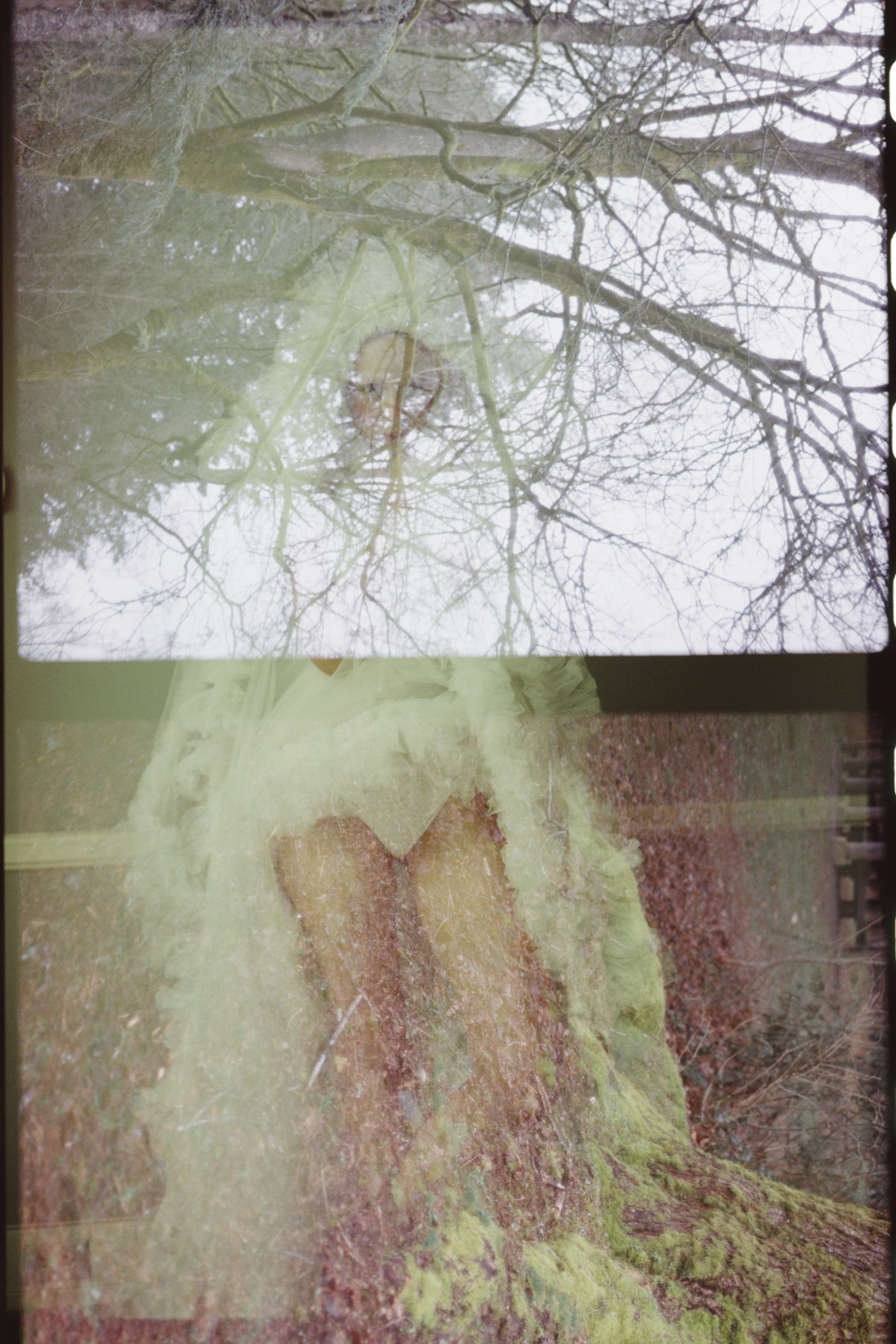
“Baby Love” was inspired by kidnapping of the Nigerian school girls. You balance the heavy political topic with a light poppy song. What do you see as your role as an artist when it comes to political events like this, and where do you think your performance fits into the narrative?
I just felt related to the kidnapping of those girls in Nigeria and while i wrote Baby Love, I was thinking about how in some dark places , love is disappearing and people forget what this word means.
I wanted to show those girls are strong with dreams and broken hearts like any other girl. They will have normal life no matter what and luckily most of those girls returned to their families. This song’s pain helps people to overcome things, give strength and that my goal in music.
You deal with deep issues like trauma and the unconscious in your work. How do you reconcile this with your poppy, positive, dance-worthy sound?
I’ve always liked sad songs that you can dance to.
The concept of bringing subliminal dreams to reality is an idea you touch on within your music. Explain the process of how you tap into your own subconscious to bring these dreams to reality within your work.
In my video for Barbaric, I traveled to Miami’s senior homes as i grew up with my grandparents and felt i could find there my family , to show how aged people still wants to dance and have animalistic passions too.
All of your music is layered with complex meaning, references and symbolism. Many have tried to decipher your work (even preparing for this interview, I’ve tried to understand you.) Do you ever feel that your audience misinterprets your work?
I’m not trying too hard to be explicable, it’s more of a feelings and intuition that leads me subconsciously, most of the time I realize the concept just in retrospective.
It’s been two years since your debut album “Lil Empire” was released. When can we expect new music from you? Can you give us any insight into the types of themes or sounds you are focusing on?
It’s more dark and classy. There’s a Diane Warren song there which is a very Bowieish classic.
I think I just put my heart out this time, with more classic instruments.
When you’re not recording, performing or studying philosophy, where can we find you and what are you doing?
I moved from London lately to Los Angeles, you can find me sometimes in Little Tokyo eating Onigiri.
If you weren’t a musician, what would you be doing?
A philosophy professor.
Quick Q’s
Favorite designer?
Angel Chen, I think Chinese fashion is really out exciting and unexpected.
Dream musical collaboration?
Guilty pleasure?
I smoke a cigar. I’v always wanted someone who is smoking a cigar, but no one wants so I do. Sometimes a cigar is not just a cigar.
One thing you never leave the house without?
a book et mon chapeau, a big huge hat.
Favorite item in your wardrobe?
I started a new hobby, pink vinyl collection.
What’s the first thing you do when you wake up in the morning?
Got addicted to matcha.
Credits
Photography: Pamela Neal
Creative director: Deborah Ferguson
Layout art director: Charlotte Lethbridge
Make up : Jo Strettell @ Tracey Mattingly using CHANEL cosmetics and Retrouve luxury skin care
Hair : Preston Wada @ OPUS beauty

